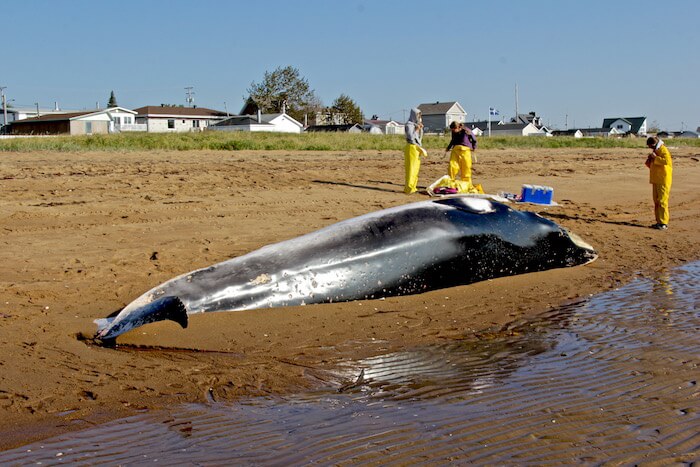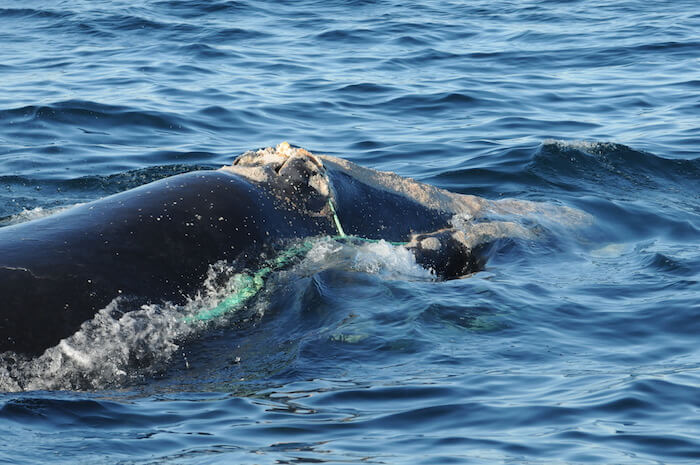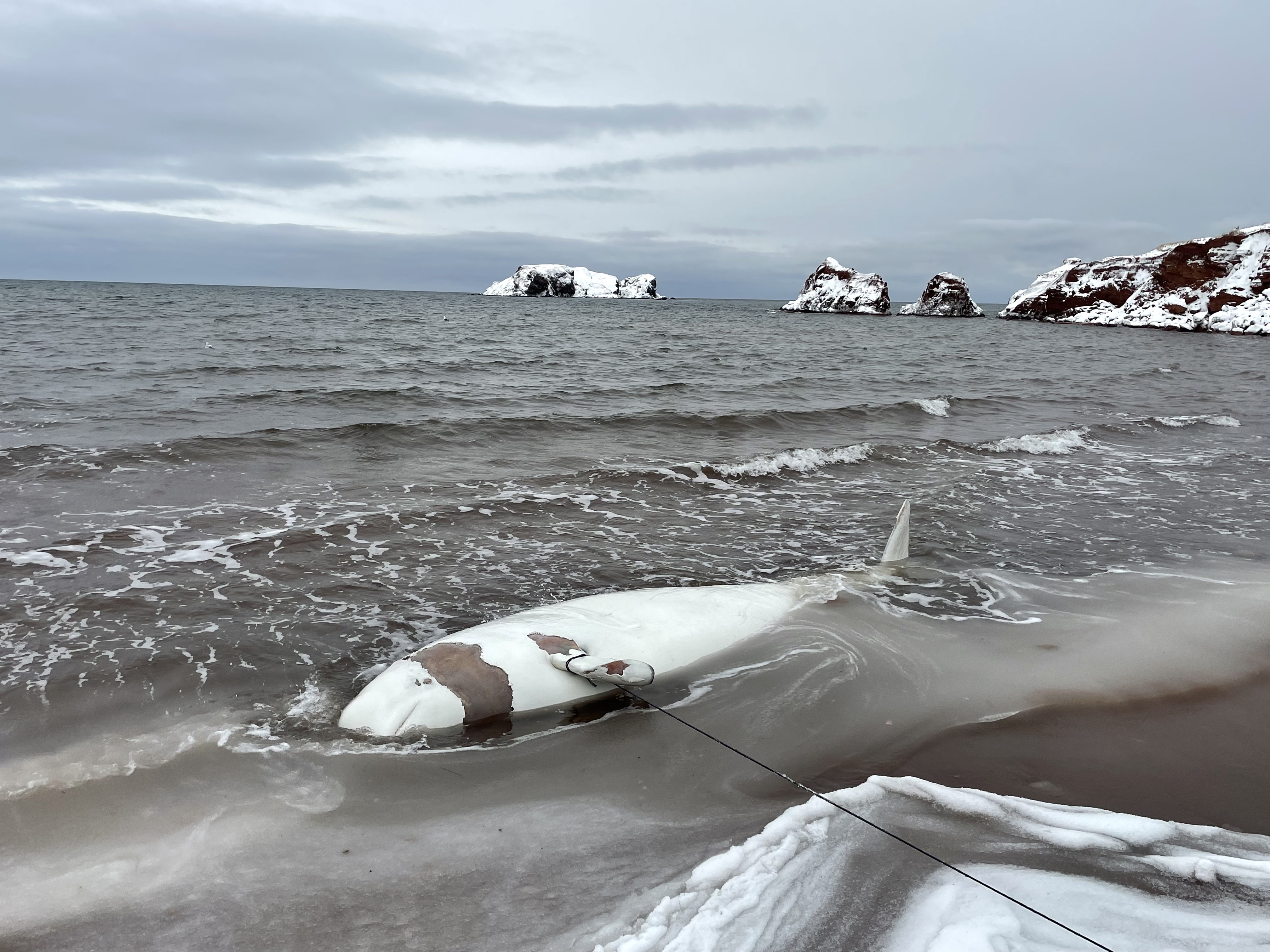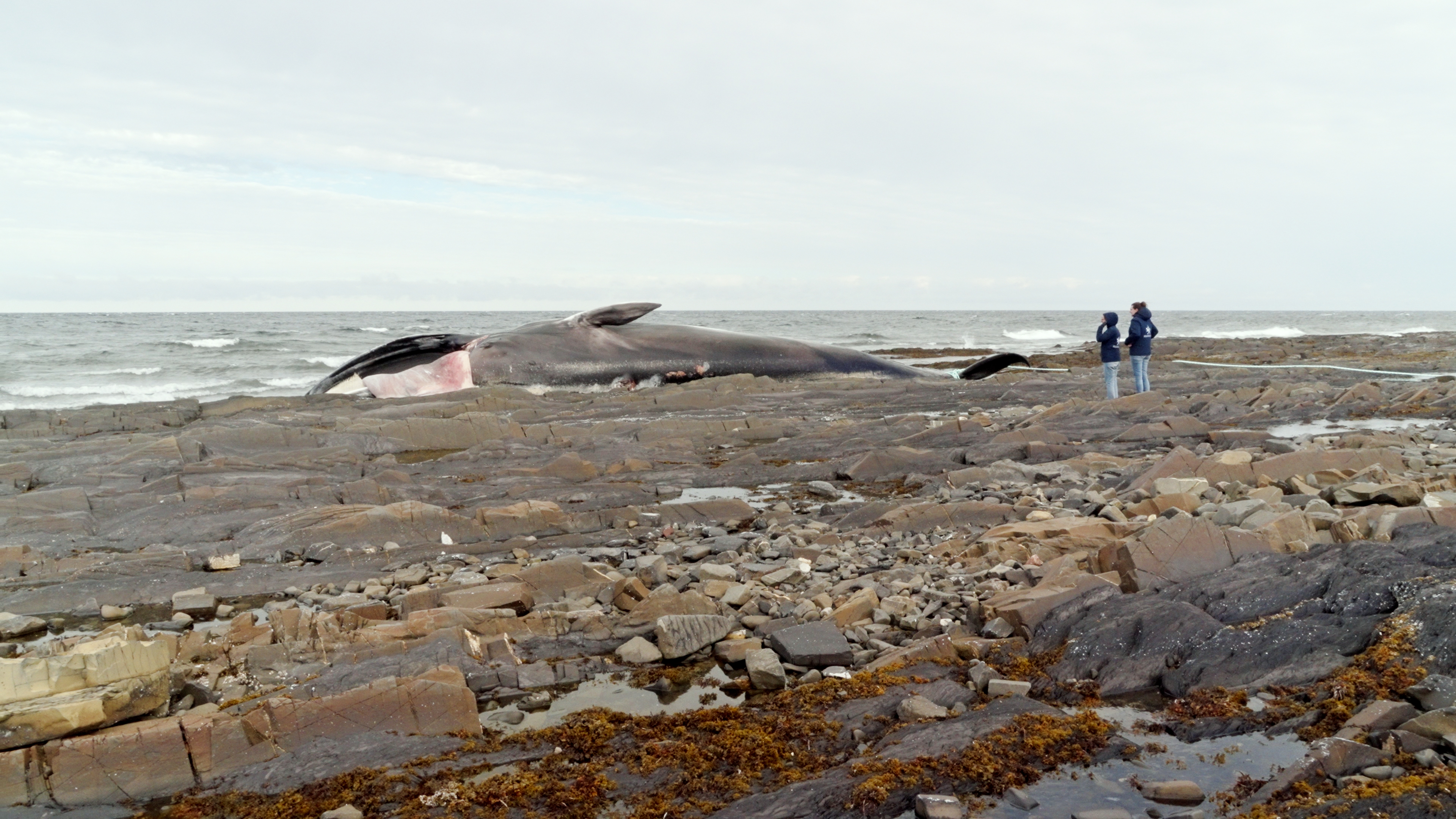With the return of mild temps and melting ice, this is the time of year when residents, fishermen and boat operators are likely to witness incidents involving seals and whales. The Quebec Marine Mammal Emergency Response Network reiterates the importance of promptly reporting any marine mammal that is dead or in difficulty to the 24/7 hotline 1-877-7baleine (1-877-722-5346).
Valuable reports for science and conservation
With over a dozen partners, the Marine Mammal Emergencies network is responsible for organizing, coordinating and implementing measures aimed at reducing accidental mortalities in marine mammals, rescuing those in difficulty, and facilitating the acquisition of data from beached or drifting carcasses in St. Lawrence waters within Quebec’s jurisdiction.
The 1-877-7baleine call centre processes nearly 500 calls a year. Seal carcasses, live stranded cetaceans, whales caught in fishing gear or harassment of seal pups on the beach: an impressive diversity of incidents is reported throughout the summer, for which experts have developed response plans and scientific documentation protocols.
Should you happen to witness a situation involving a dead or distressed seal or whale, contact 1-877-7baleine as soon as possible. It is recommended to call while still at the observation site and take photos of the animal and its surroundings. Be sure to be prepared to answer a few questions and provide the information required so that the call centre can have an accurate overview of the situation. The Marine Mammal Emergencies team will decide what actions to take, depending on the incident reported.
Carcasses that speak volumes
Every carcass that is found is an important source of information. Depending on the species of seal or whale, specialized teams of volunteers and scientists will be involved in gathering knowledge from the specimen such as age group, size, carcass condition, etc. These data make it possible to develop appropriate response plans and, more generally, monitor marine mammal populations in the St. Lawrence. Robert Michaud, who coordinates the Quebec Marine Mammal Emergency Response Network, emphasizes that “After 13 years, thanks to the collaboration of citizens and the mobilization of efficient field teams, we have a clearer picture of the various threats faced by the St. Lawrence and its inhabitants.”
Focus on right whales
The 2017 season was particularly worrying for the North Atlantic right whale population due to the 17 carcasses found in Canadian and US waters, some of which had been victims of entanglement or collisions with ships. Fisheries and Oceans Canada, a partner of Marine Mammal Emergencies, recalls that if you observe a right whale entangled in fishing gear, you should not attempt to release it on your own, as the behaviour of an ensnared individual is unpredictable and dangerous. Instead, you should immediately call 1-877-7baleine to provide information that will allow experts to plan an appropriate response.







